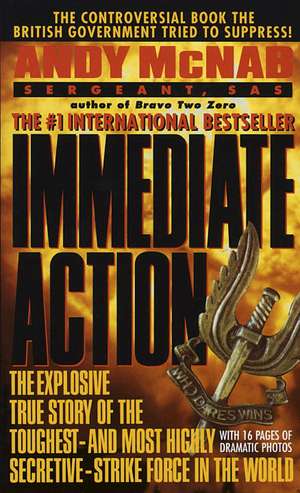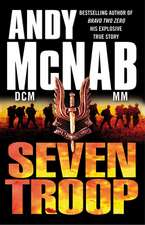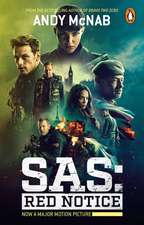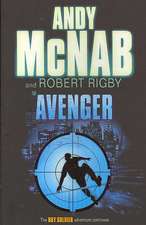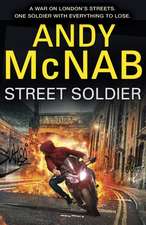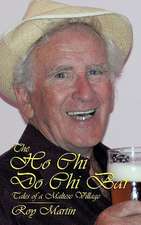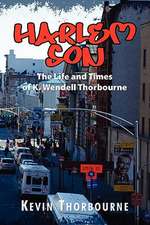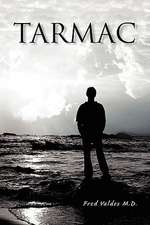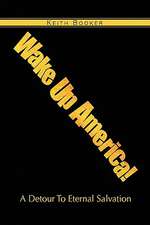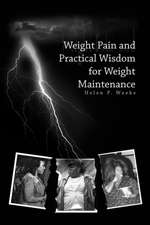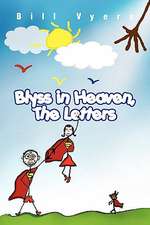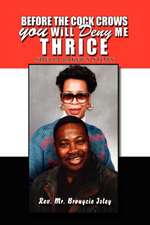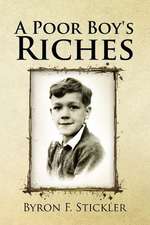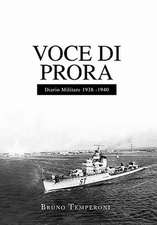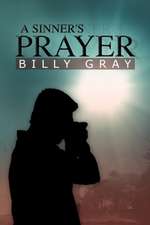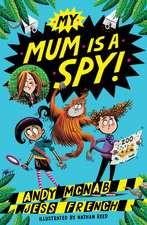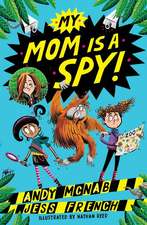Immediate Action
Autor Andy McNaben Limba Engleză Paperback – 31 iul 1996
A street fighter, a hard case, and a flawless soldier, Andy McNab became one of the elite fighting men in "the Regiment"--Britain's covert SAS. His actions behind the lines in the Gulf War made him a hero. But the full story of his life and his amazing career in Special Forces has remained a secret...until now.
In harrowing detail, McNab takes us inside the Regiment, chronicling nine years of covert operations on five continents. Plunging us into a world of surveillance, counterintelligence, and hostage rescue, he takes us behind the scenes on some of their top secret missions. For the first time, he reveals the shocking details of their training--physically severe, mentally grueling, and sometimes deadly. And he dares to expose some of their highly confidential codes and rules--including the one that sanctions murder.
This is the story of the fighting men of the SAS. Here is how they live. And here is how they die...
Preț: 53.78 lei
Nou
Puncte Express: 81
Preț estimativ în valută:
10.29€ • 10.77$ • 8.51£
10.29€ • 10.77$ • 8.51£
Carte indisponibilă temporar
Doresc să fiu notificat când acest titlu va fi disponibil:
Se trimite...
Preluare comenzi: 021 569.72.76
Specificații
ISBN-13: 9780440222453
ISBN-10: 0440222451
Pagini: 512
Dimensiuni: 109 x 171 x 29 mm
Greutate: 0.25 kg
Editura: dell
ISBN-10: 0440222451
Pagini: 512
Dimensiuni: 109 x 171 x 29 mm
Greutate: 0.25 kg
Editura: dell
Notă biografică
Andy McNab, Sergeant, SAS, joined the British infantry as a boy soldier. In 1984 he was "badged" as a member of the SAS--the British special forces--and has since been involved in elite intelligence and combat operations worldwide. During the Gulf War he commanded Bravo Two Zero, a patrol that in the words of his commanding officer "will remain in regimental history forever." After six months of medical treatment immediately following his release by the Iraqis, Andy McNab was back on active service. He remained with the SAS until February 1993, at which time he was the most highly decorated soldier in the British Army. He is also the author of Bravo Two Zero.
Extras
"I want to fly helicopters," I said to the recruiting sergeant. "I want to go in the Army Air Corps."
I took a simple test in English and Maths, which I failed.
"Come and try again in a month's time," the sergeant said. "The test will be exactly the same."
I went down to the public library and studied a book on basic arithmetic. If I could master multiplication, I told myself, I'd never again have to hear the sound of a cell door slamming.
Four weeks later I went back in, sat the same test, and passed--by two points. The sergeant gave me a pile of forms to take home.
"What are you going in?" my dad said.
"Army Air Corps."
"That's all right then. We don't want any of that infantry shit. You don't learn anything in that."
I was given a travel warrant and went off to Sutton Coldfield for the three-day selection process. We were given medicals and simple tests of the "If this cog turns this way, which way does that cog turn?" variety, and did a bit of sport. We watched films and were given talks about teeth arms and support arms, and where the army was in the world. I was loving it. The Army Air Corps seemed to operate everywhere; Cyprus and Hong Kong looked good for starters.
As I was going through the tests, though, the terrible truth dawned on me that there was no way I was going to become pilot. A lot of the other candidates were in the brain surgeon bracket, loaded down with O levels and going for junior apprenticeships to become artificers and surveyors. You'd have to be in same league as them to go for pilot training, and I didn't have a qualification to my name. All the time I had wasted humping coal and lemonade flashed in front of me as if I was a drowning man. For the first time since I'd been old enough to do something about I was surrounded by blokes who had something that I wanted--but this time it was something that couldn't be nicked.
At the final interview, an officer said to me, "You can go into the Army Air Corps, and train as a refueller. However, I don't think you would be best suited to that. You're an active sort of bloke, aren't you, McNab?"
"I suppose so."
Probably fancy a bit of traveling, seeing a bit of the world?"
"That's me."
Well then, have you considered a career in the infantry? There's a lot more potential--the battalions move every two or three years, you're going to different places. It's a more exciting life for a young man. We have vacancies in the Royal Green Jackets."
"Right, I'll have some of that."
I was quite proud of myself. I thought I'd cracked it, I was a man, I was in the army now. I couldn't wait to get home and tell my parents the news.
"What did you land up in then?" the old man asked, looking up from his paper.
"The Royal Green Jackets."
"What's that?"
"Part of the Light Division," I beamed. "You know--light infantry."
"You wanker!" he exploded, hurling his newspaper to the floor. "You're not going to learn anything. All you're going to do is run around humping a big pack on your back."
But I was not going to be deterred. A couple of days later, when it was clear that my mind was made up, my mum handed me an envelope and said, "I think you need to know all about this."
I opened the envelope and pulled out my adoption certificate. It wasn't a shock. I knew my brother was adopted, and I'd always just taken it for granted that I was, too. I wasn't really fussed about it.
"I met your natural mother when you were about a year old," my mum said. "She told me that she worked for a Greek immigrant who'd come over to England in the fifties and was running a nightclub in the West End. She sold the cigarettes in the club, and was seventeen when she fell pregnant by him. She told me neither of them wanted a baby so she left you on the hospital steps in a carrier bag."
My mum and dad had fostered me more or less straightaway, and eventually adopted me.
"She wasn't really concerned about you, Andy," my mum said. "She said to me, "I can always have other kids."
I took a simple test in English and Maths, which I failed.
"Come and try again in a month's time," the sergeant said. "The test will be exactly the same."
I went down to the public library and studied a book on basic arithmetic. If I could master multiplication, I told myself, I'd never again have to hear the sound of a cell door slamming.
Four weeks later I went back in, sat the same test, and passed--by two points. The sergeant gave me a pile of forms to take home.
"What are you going in?" my dad said.
"Army Air Corps."
"That's all right then. We don't want any of that infantry shit. You don't learn anything in that."
I was given a travel warrant and went off to Sutton Coldfield for the three-day selection process. We were given medicals and simple tests of the "If this cog turns this way, which way does that cog turn?" variety, and did a bit of sport. We watched films and were given talks about teeth arms and support arms, and where the army was in the world. I was loving it. The Army Air Corps seemed to operate everywhere; Cyprus and Hong Kong looked good for starters.
As I was going through the tests, though, the terrible truth dawned on me that there was no way I was going to become pilot. A lot of the other candidates were in the brain surgeon bracket, loaded down with O levels and going for junior apprenticeships to become artificers and surveyors. You'd have to be in same league as them to go for pilot training, and I didn't have a qualification to my name. All the time I had wasted humping coal and lemonade flashed in front of me as if I was a drowning man. For the first time since I'd been old enough to do something about I was surrounded by blokes who had something that I wanted--but this time it was something that couldn't be nicked.
At the final interview, an officer said to me, "You can go into the Army Air Corps, and train as a refueller. However, I don't think you would be best suited to that. You're an active sort of bloke, aren't you, McNab?"
"I suppose so."
Probably fancy a bit of traveling, seeing a bit of the world?"
"That's me."
Well then, have you considered a career in the infantry? There's a lot more potential--the battalions move every two or three years, you're going to different places. It's a more exciting life for a young man. We have vacancies in the Royal Green Jackets."
"Right, I'll have some of that."
I was quite proud of myself. I thought I'd cracked it, I was a man, I was in the army now. I couldn't wait to get home and tell my parents the news.
"What did you land up in then?" the old man asked, looking up from his paper.
"The Royal Green Jackets."
"What's that?"
"Part of the Light Division," I beamed. "You know--light infantry."
"You wanker!" he exploded, hurling his newspaper to the floor. "You're not going to learn anything. All you're going to do is run around humping a big pack on your back."
But I was not going to be deterred. A couple of days later, when it was clear that my mind was made up, my mum handed me an envelope and said, "I think you need to know all about this."
I opened the envelope and pulled out my adoption certificate. It wasn't a shock. I knew my brother was adopted, and I'd always just taken it for granted that I was, too. I wasn't really fussed about it.
"I met your natural mother when you were about a year old," my mum said. "She told me that she worked for a Greek immigrant who'd come over to England in the fifties and was running a nightclub in the West End. She sold the cigarettes in the club, and was seventeen when she fell pregnant by him. She told me neither of them wanted a baby so she left you on the hospital steps in a carrier bag."
My mum and dad had fostered me more or less straightaway, and eventually adopted me.
"She wasn't really concerned about you, Andy," my mum said. "She said to me, "I can always have other kids."
Descriere
From the war-torn streets of Armagh to the frontlines of the Gulf War, Andy McNab brings home the horrors--and even humor--of modern war. Recounting his military life, starting as a young soldier fighting the IRA, through his years in the world's most effective Special Forces unit, readers get a astonishing account that the Bristish Government tried to suppress.
